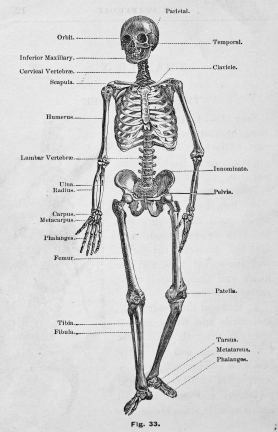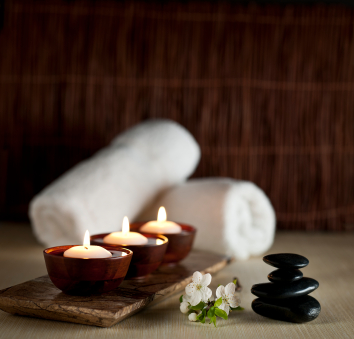The Roundup: Fall News and Tidbits

[Credit: Special Thanks to artist Darryl Willison of Whimsicalwest.com Please visit his site and support his work.]
Wow! Can you believe that we have reached the last month of the year? I haven’t done a Roundup in some time so in case you’ve missed something, I’m selecting my Fall favs for your perusal.
Enjoy!
- Menophrenia? The Walking Dead have nothing on zombiepausal women. Welcome to the dark side of vintage advertising.
- HRT takes yet another hit. The U.S. Preventive Task Force says that hormone therapy will not protect you against chronic disease.
- Speak up! Women have plenty to say…except when it comes to corporate or governing bodies. It’s time to change that paradigm, don’t you think?
- Feeling Wheezy? What’s in your medicine cabinet? HRT may be worsening your asthma.
- I Put a Spell on You. If your flashing it out of control, you may want to see a hypnotist. That’s right; researchers say that hypnosis can significantly benefit number and severity of hot flashes.
- No Bones About It! Aging is part of the bone loss story. But what about your diet and the meds you take? Time to look closer and factors that may be influencing your skeleton.
Wednesday Bubble: Relax, just do it.
You think that hormones are the only solution to hot flashes?
Think again!
This is not the first time that I have reported that the mind-body connection is an important key to menopausal symptoms. Moreover, it probably won’t be the last. In fact, in a second study published within the past 18 months in Menopause journal, researchers are again moving away from hormones and moving towards applied relaxation. (A related study topic-wise can be found here.)
This time, Swedish researchers assigned 60 women in menopause to either ten sessions of group therapy combined with relaxation or to no intervention for three months. All of the women had been experiencing moderate to severe hot flashes at least 50 times a week. During the 10 group therapy relaxation sessions, the women were taught to methodically move through the body’s muscle groups and use breathing techniques to systematically relax each group. They were then provided with exercises to practice daily at home, with the the goal being to learn the relaxation method and self-manage their symptoms. During this period, all participants kept a regular hot flash diary and filled out a quality of life survey on three different occasions. They also provided the researchers with a sample of their saliva.
The findings? Women practicing daily relaxation and engaging in regular coaching sessions actually reduced their daily hot flash count from an average of 9.1 to 4.4 a day; that’s about a 50% reduction. In the group of women who had no interventions, a reduction in daily hot flashes was also observed but on average, these women experienced less than two fewer flashes a day; this is likely the result of what researchers consider a ‘placebo effect.’
More importantly, benefits of relaxation remained for at least three months after the study ended and the final therapy sessions. The women who practiced relaxation also reported improvements in overall wellbeing and quality of life, including sleep and memory. What’s more, saliva testing showed reductions in cortisol; as I’ve written previously, stress leads to cortisol release and ups the hot flashes ratio. Once that cycle starts, who knows how long the endless loop plays out?!
Time to stop the loop? Forget the drugs. Breathe deeply, exhale and repeat. Just do it.
Read More
Is a spa retreat the key to your soul’s estate?
(S)he enjoys true leisure who has time to improve his soul’s estate. – Henry David Thoreau
If you are anything like me, you’ve worked yourself to the nth degree and are in need of rejuvenation. After all, your soul’s estate is only as valuable as its upkeep, right? However, is there any proven benefits to a spa retreat beyond that incredible boost of endorphins that feed an overall sense of wellbeing?
Evidently, there really is! In fact, contrary to what many believe, newly-published research in Integrative Medicine suggests that the combination of caloric restriction, colonic therapy, meditation and yoga may provide the body with actual physiological benefits beyond the feeling of wellness. Mind you, certain practices like caloric restriction can be downright dangerous if not effectively carried out, reducing much needed vitamins and minerals, resulting in a loss of lean body mass and even taxing the heart. Colonic hydrotherapy, i.e. removing toxins from the intestines, has likewise been questioned, namely because there are few data to support claims of therapeutic benefit and without proper guidance, may result in nausea, vomiting, dehydration and electrolyte imbalance.
However, in this very small study of 15 healthy women and men, a one-week, intensive spa program that focused on three main areas – calories, toxins and stress management — yielded some surprising results. Roughly three to four days before a week at the spa, the participants switched out their normal eating habits for fruit, raw and steamed veggies, salads, juices and herbal teas, 2 tablespoon of olive oil at bedtime, 8 oz of prune juice every morning and laxative teas at night. They were also asked to avoid potatoes, bananas, all grains, pasta, meat, dairy, processed foods, caffeine and alcohol.
At the spa, all received at least four colonic treatments and did 800 calorie juice-fast cleanses (all herbal teas, veg/fruit juices, probiotics, digestive enzymes, herbal laxatives, olive oil, vegetarian liquid protein supplements, vegetarian soup and water with lemon). They also participated in daily structured meditation and yoga programs as well as personal meditation to boost deep breathing, heightened awareness and calm.
The findings? Clearly, all participants dropped weight, which is to be well expected from caloric restriction; this weight loss averaged about 7 pounds. Likewise, there was expected decrease in blood pressure. Blood fat levels, namely total cholesterol, also benefitted, and levels of mercury declined in some participants, which supports the hypothesis that this type of program can help clear the body of certain toxins. Not surprisingly, the researchers also noted a significant decrease in stress, depression and anxiety and saw improvements in anger levels, tension and fatigue. Spirituality scores also improved, probably as a result of meditation and the group appeared to be more intensely unified than before the spa visit.
Researchers say that while the study is quite small, it appears that intensive spa programs may have some real benefits. One thing to note is that the participants experienced changes in sodium and chloride levels. This indicates that some of these interventions do affect electrolyte levels and therefore, can be risky in people who are predisposed to imbalances or on certain medications like diuretics. The researchers also recommend that before participating in ‘extreme spa,’ that you have a complete physical to insure that your body is up to the task.
Extreme spa or gentle spa that focuses on health, balance and internal (re)connection. All may hold the key to estate management. Your soul will thank you!
Read MoreWednesday Bubble: Giving Thanks
Ain’t no Wednesday Bubble this week.
Granted, I thought about sharing news of a study about spa and your health. Or discussing how many calories Americans are actually drinking. Or, providing you with healthy Thanksgiving meal tips. Instead, I felt it was more important to share that I am truly thankful that you take the time out of your schedules to read Flashfree. Truly thankful. And truly happy.
I had a book when I was growing up entitled “That Happy Feeling of Thank You.” I still have it. And sometimes I secretly linger in its battered pages and just pause for a moment.
“Thank you” is for not being afraid of darkness or being alone.”
“And, “thank you” is for growing up, too — For being brave enough to tell the truth — even when it would be easier not to.”
“Thank you” is to know a friend who will stretch out on the warm grass and pretend along with you that the whole world is upside down.”
What are you thankful for?
Seriously, take a moment and think about it.
Me? Although this has been one of the most challenging years in my entire career, with little time to breathe, I am eternally grateful for the work and income, for my friends who have put up with my crankies and my long absences, and for the few who’ve consistently held me up. You know who you are.
Thanksgiving really isn’t about eating; it’s about sharing and celebrating the gifts in our lives that really matter.
I am truly blessed.
Thank you.
Read MoreOh dem bones! Time to cut your losses.
 Remember the ‘Capture the Fracture’ post from a few weeks back? In it, I reported that the International Osteoporosis Foundation is urging women and men alike to receive screening for bone loss, especially if they had some sort of fracture in their early years. Ironically, over the weekend, a close friend shared that she had been told that she has osteopenia, i.e. low bone mineral density, and it started me wondering how many of my readers have actually gone to their practitioners for a baseline? Me? I am guilty as charged; in fact, because of an absolutely crazy work schedule for most of this year, I’m very much behind on all my health visits.
Remember the ‘Capture the Fracture’ post from a few weeks back? In it, I reported that the International Osteoporosis Foundation is urging women and men alike to receive screening for bone loss, especially if they had some sort of fracture in their early years. Ironically, over the weekend, a close friend shared that she had been told that she has osteopenia, i.e. low bone mineral density, and it started me wondering how many of my readers have actually gone to their practitioners for a baseline? Me? I am guilty as charged; in fact, because of an absolutely crazy work schedule for most of this year, I’m very much behind on all my health visits.
So, back to osteoporosis, osteopenia and fragility fractures. I imagine that many of you are growing tired of reading about these topics on Flashfree but I can’t help myself; they’re vitally important.
According to the National Osteoporosis Foundation, by 2020 — a mere seven years from now — more than half of Americans over the age of 50 are expected to have low bone density or develop osteoporosis. Data also suggest that the risk of hip fracture in women is greater than the risk of all female cancers combined. What’s more, women who experience a hip fracture in their later years have almost a 3-fold risk of dying in the three months that follow.
Are you paying attention yet? You should be, because as I’ve written time and again,within the first 10 years of the onset of menopause, women lose up to 50% of their spongy, or trabecular bone (the network that makes up most of bone structure) and up to 30% of their cortical bone (the outer shell).
However, it’s not just hormones at play. In the latest issue of the International Journal of Medical Engineering and Informatics, Portugese researchers are reporting that several factors appear to be associated with an increased fracture risk in menopausal women with and without a history of fracture, including age over 65, lower bone mineral density (BMD), a sedentary lifestyle, and eating or drinking caffeine-containing foods. In population of 127 women, almost 41% had osteopenia and roughly 20%, osteoporosis. Less than 40% had normal bone mineral density values.
However, these factors are not the only variables that you should be thinking about. Research shows that many medications can contribute to bone loss. They include:
- Aluminum-containing antacids
- Antidepressants (SSRIs), such as Lexapro®, Prozac® and Zoloft®
- Gonadotropin releasing hormone (GnRH) such as Lupron® and Zoladex®
- Heparin
- Lithium
- Depo-Provera®
- Methotrexate
- Proton pump inhibitors (PPIs) such as Nexium®, Prevacid® and Prilosec®
- Steroids such as cortisone and prednisone
- Tamoxifen® (premenopausal use)
- Type 2 diabetes medications (Actos® and Avandia®)
- Thyroid hormones in excess
And, a small case study analysis has shown that if you are a woman who has had estrogen receptor positive breast cancer and previously treated with aromatase inhibitors (e.g. Arimidex, Femura), you have a 27% increase for the risk of bone loss and a 21% risk for a hip fracture at an earlier age. Additionally, these events can occur at a higher bone mineral density level than postmenopausal women who have not had chemotherapy.
Short of starting medical therapy with bisphosphonates (which have a rash of problems associated with their use), what can you do? Clearly, a great place to start is with regular weight-bearing exercise and insuring that your diet contains adequate amounts of calcium and vitamin D, although we know that some of amount of bone loss is inevitable as we age. However, before you become frustrated, there are a few lesser known steps that have clinical evidence behind them:
- Eat prunes. Researchers say that as little as 6 to 10 a day can help boost BMD and reduce rates of bone resorption.
- Incorporate onions into your diet. Onions are another type of functional foods that have been shown to improve bone density.
- Eat more sea fish. Data have shown that who make sea fish (not shellfish or freshwater fish) at least 16% of their daily protein intake have greater BMD.
- Talk to your practitioner about taking the lowest effective dose of the medications listed above.
- Drink moderately. One or two alcoholic drinks a day may be protective. More? Not only does your liver hate you but your bones are at risk too.
There’s bad to the bone. And then, bad to the bone. Time to cut your losses, literally…
Read More









